Our Lives Before: The Piano Man of Yarmouk
His musical notoriety brought condemnation from ISIS, which banned western music. So they torched his piano.
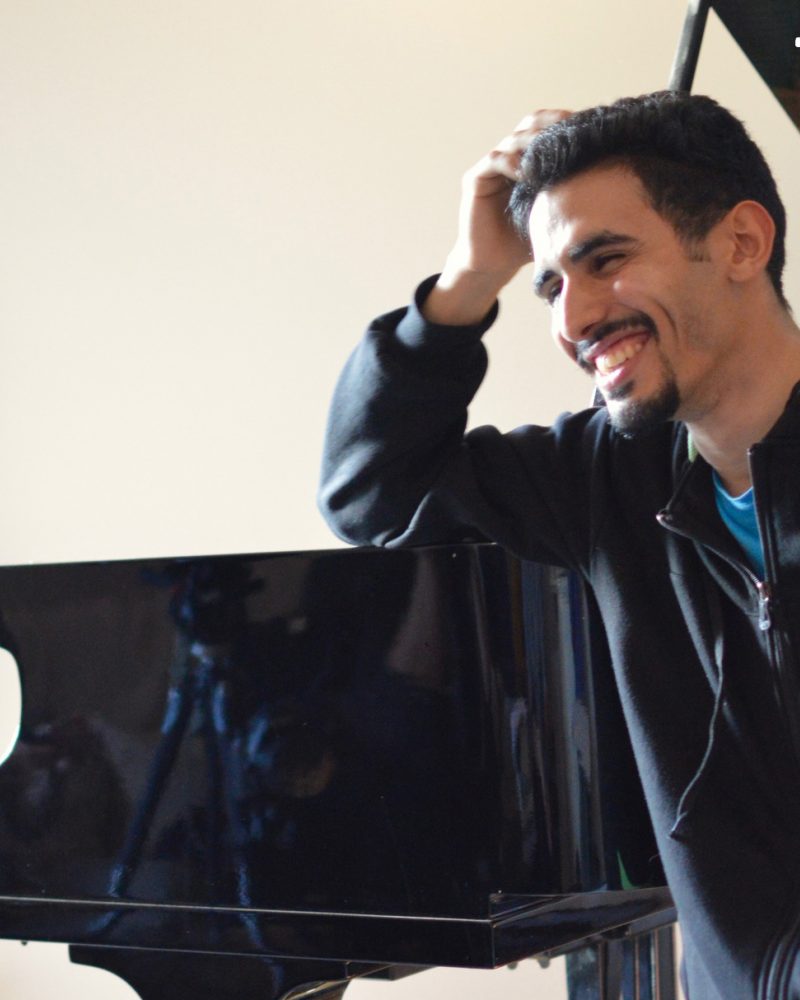
During the Syrian Civil War in 2014, Aeham became a YouTube presence by playing an old upright piano in the bombed-out ruins of Yarmouk, a suburb of Damascus, Syria. Fame wasn’t his goal. All he wanted was to bring a little happiness into the lives of his neighbors, to keep everyone from losing their minds. Aeham, a classically trained pianist, and his friends would roll the piano around the streets on a rusty green vegetable cart. Wherever they stopped, families looking for relief from the endless fighting would join them. Children would sing along, and their parents would nod to their music.
I wanted to give them a beautiful dream. I wanted to change this black color at least into gray.
Music makes us happy, full of energy, and full of lovely things in the heart, but it doesn’t make anything for the stomach. In Yarmouk, I couldn’t make falafels for 100,000 people, but I could play music for 100,000 people. When the children saw the piano, I played, and it made them happy.
There was only a small place for happiness because it was mostly sadness, a lot of dying there. And it was very dangerous in the street. A sniper killed Zana when she was playing the piano beside me. Yes, he shot her in the head. She was only twelve.
Videos of Aeham’s street performances spread online, first among Syrians, then more widely to the rest of the world. He became a symbol of hope and defiance, showing there were human beings with real lives stuck in Yarmouk. But his notoriety also brought condemnation from ISIS, which banned western music. So they torched his piano.
That was the breaking point for Aeham. He left and made his way to Europe. His first boat from Turkey to Greece sank, and several people drowned. Already widely known for his piano videos, he filmed his second crossing for the BBC. Once he was safely in Europe, he started posting his progress on Facebook. Everywhere he went, he found people who knew the story of the “Piano Man of Yarmouk.” He was received with open arms when he arrived in Germany. His message of resilience made him Germany’s most popular refugee. Soon, he was booked for piano performances almost every night, crisscrossing the country from modest venues to the country’s most renowned concert halls.
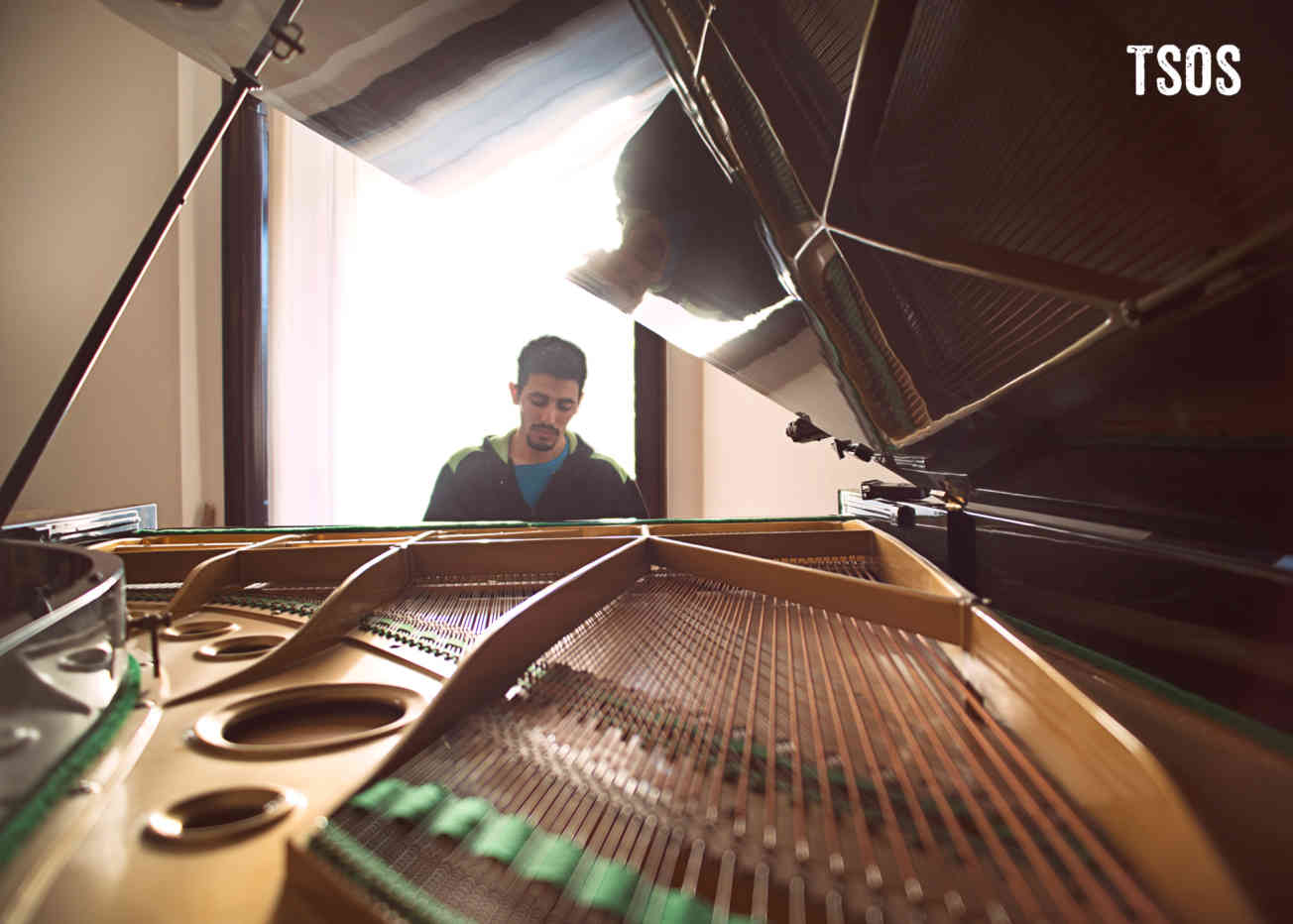
I play piano all the time. I play with orchestras in Stuttgart, Hamburg, Munich, and Berlin. It’s a very big pleasure, but I don’t feel good. I need to get back to Yarmouk and play piano in the street. In this dirty war, nobody can make a decision. You are dying or fleeing. You can have it only one way. And I don’t have a lot of hope changing it with music.
I had good memories with my music before, but now I play music with a lot of pain because I have pain. They clap for me, but those back in Syria are still in prison, under siege, under bombs.
His music gives voice to the 18,000 still-besieged civilians who remain trapped in the battlefield of Yarmouk, without access to adequate food, drinking water, electricity or medical services. Hundreds of Yarmouk’s people have died during the 3-year siege due to starvation and violence. Since the beginning of the war in 2012, more than 4.4 million Syrians have fled the violence and de vastation of their country and now live as refugees scattered throughout the world.
On December 18, 2015, Aeham was awarded the International Beethoven Prize for Human Rights, Peace, Inclusion and the Fight Against Poverty.
In August 2016 Aeham was reunited with his wife and two children in Germany.
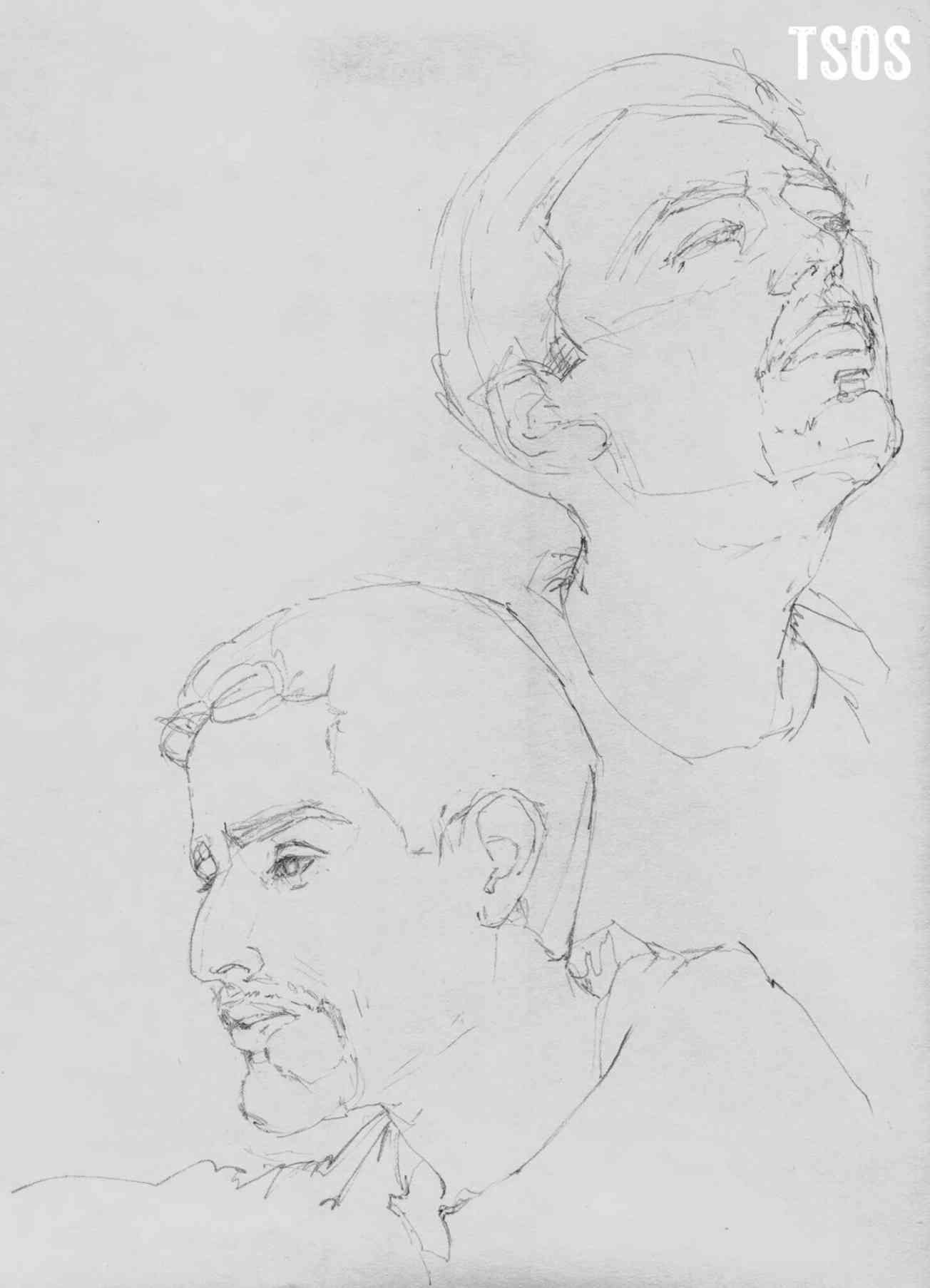
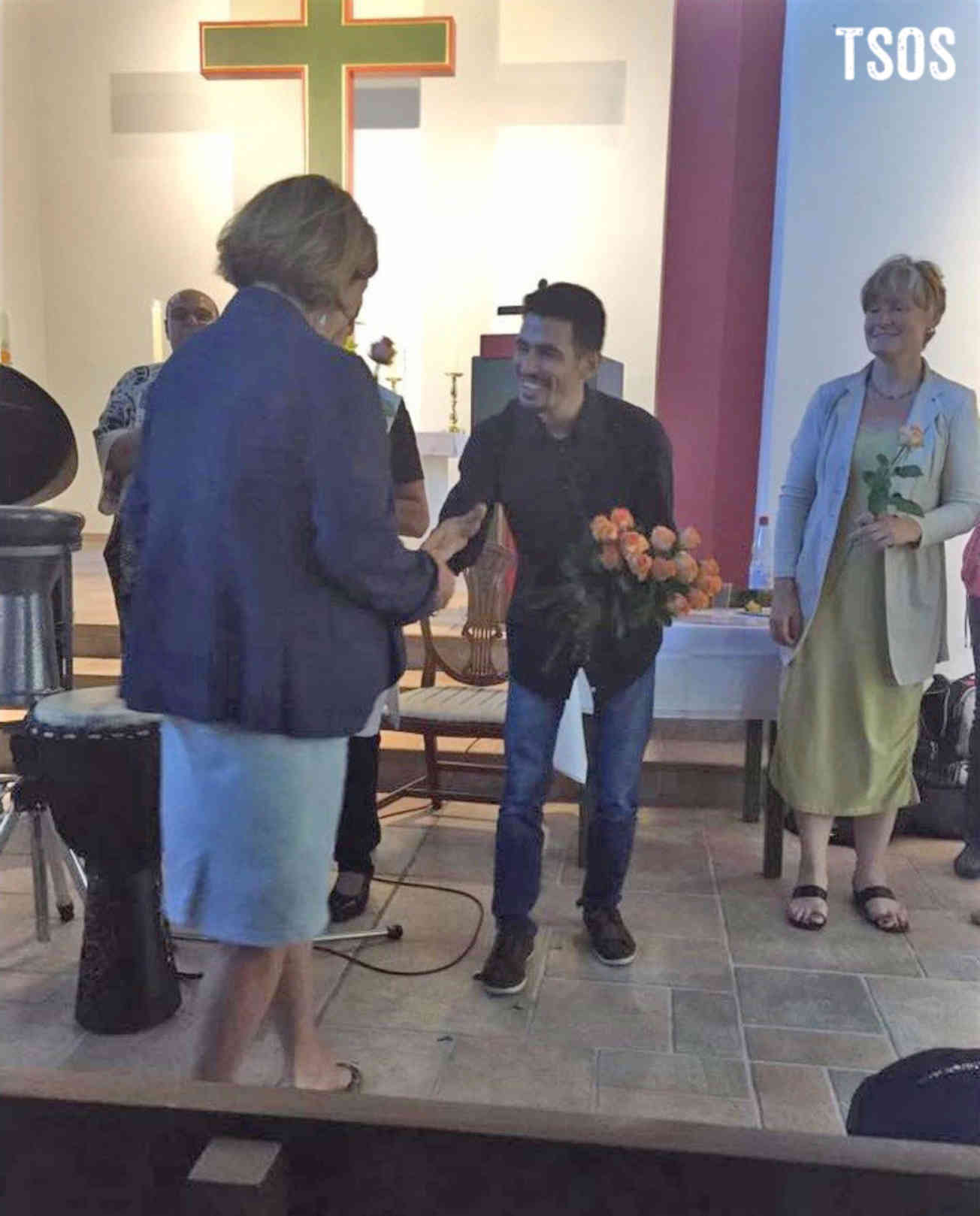
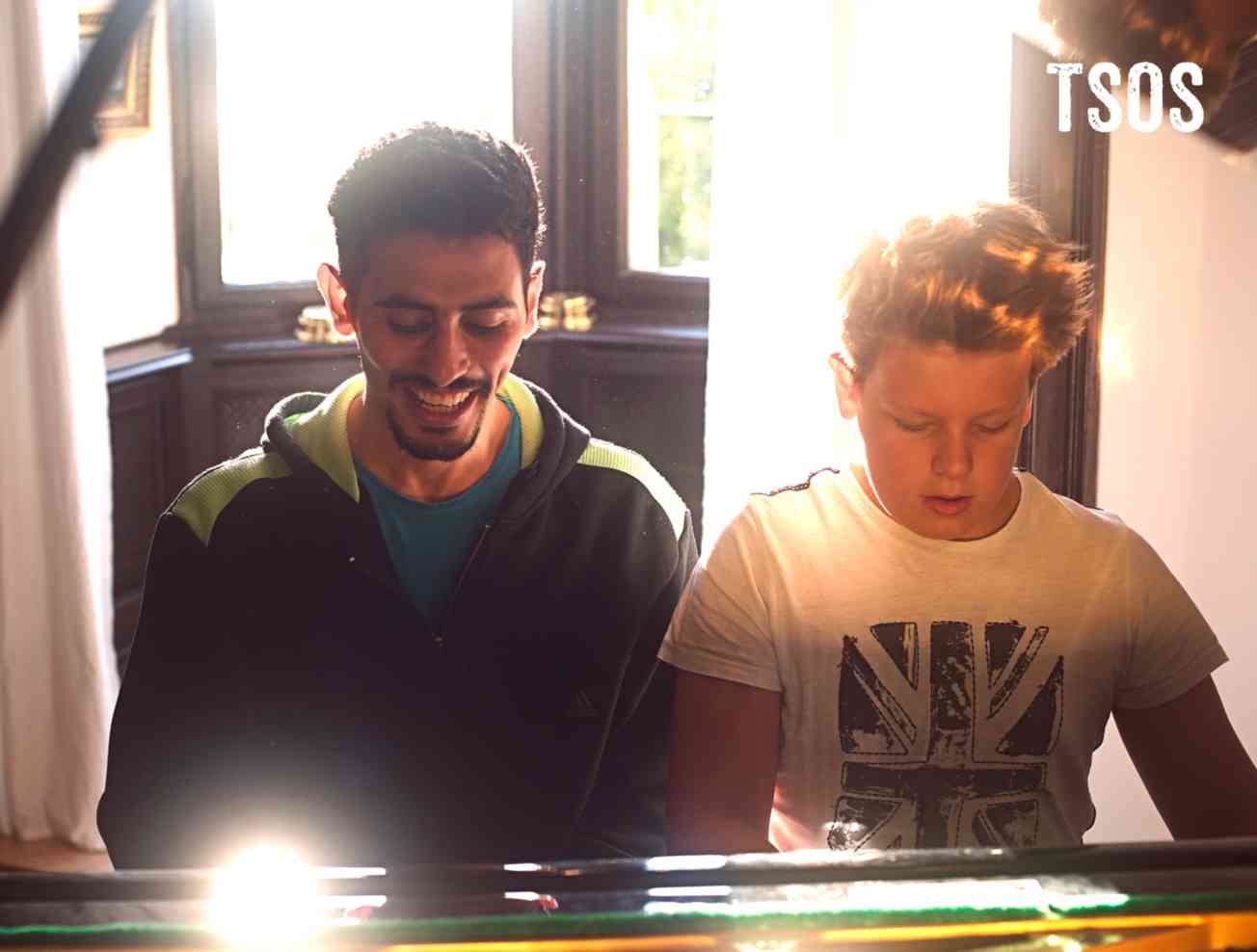
Our team members obtain informed consent from each individual before an interview takes place. Individuals dictate where their stories may be shared and what personal information they wish to keep private. In situations where the individual is at risk and/or wishes to remain anonymous, alias names are used and other identifying information is removed from interviews immediately after they are received by TSOS. We have also committed not to use refugee images or stories for fundraising purposes without explicit permission. Our top priority is to protect and honor the wishes of our interview subjects.